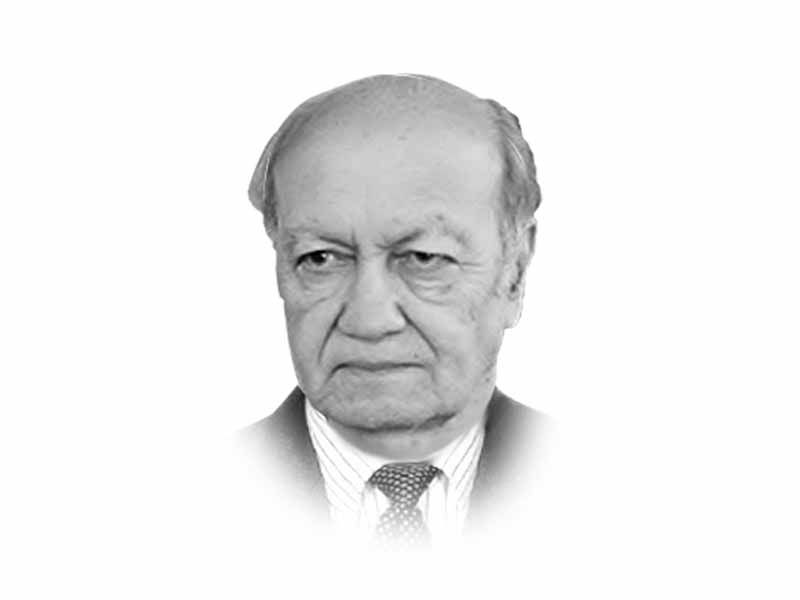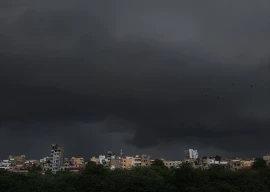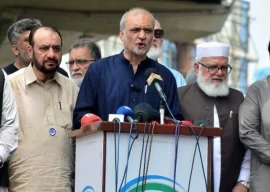
Moreover, our politicians, military, judiciary, bureaucracy and the media have to engage in a lot of introspection and self-assessment. And then connect it with the larger picture to find ways to steer the country out of the current crisis.
The reason why this is necessary is that no one institution or outside forces can place the country on the right direction as 71 years of experience has demonstrated. Moreover, if democracy has to take root then institutions will have to confine themselves to constitutional boundaries. As recently witnessed, when the previous chief justice delved in the executive domain, the judicial side remained grossly neglected. Similarly, during periods when military seized power, politics suffered for which we continue to pay the price to date. Military leadership took major foreign policy and political decisions in the 1965 war, were the prime exponents of Kargil and influenced the trial of late Bhutto, which for the country was a traumatic setback. When political leaders indulged in undermining each other through unfair means including the use of state institutions they lowered their image in the eyes of the people and ultimately became hostage of their own doings. One can give several examples from the past to illustrate how important it is for institutions to reorient their thinking and stay within the constitutional boundaries. This is a major condition for graduating toward a ‘Naya Pakistan’. Mere cosmetic changes and statements that “we are on the same page” may temporarily give a good feeling but no substantial gain would be achieved. If that was a reality then what is PM Imran Khan expressing his concern about NRO being given to Nawaz Sharif and other opposition leadership under trial? Furthermore, should we now assume that the PM, the cabinet and parliament are the real architects and implementers of foreign, defence and security policy?
It is generally overlooked that institutional weaknesses have adverse impacts on the economy, national policies and social development of society.
Blame game has become a national pastime and a futile exercise with every institution blaming the other for the mess. Instead, leaders should take stock of the shortcomings and resort to remedial measures, especially in areas that fall under their constitutional obligations. Recently, Chief Justice Asif Saeed Khosa, on assumption of office, stressed the need for improving efficiency of the courts and working within constitutional limits. Similar commitment by politicians, bureaucracy and military would strengthen the institutions and the governing system as a whole.
Lack of institutional cohesion and democratic indifference has sapped the energy of the nation. If allowed to continue, Pakistan would remain locked in the present cycle of economic dependence, political instability and socially divisiveness. Foreign powers have been exploiting this weakness for decades and we have fallen victim to their machinations. Pakistan’s unique location has a geostrategic importance that our leaders are well aware of, but national failings have turned it into a liability.
Process of accountability should continue unabated honestly and rigorously, but not at the expense of weakening political institutions and state structure. There is a thin line between pursuing a correct policy and undermining the political system when it is as fragile as ours. It is questionable if the present litany of accusations, irrespective of their credibility, is strengthening the state or demoralising it. Let NAB and the judiciary deal with cases of corruption. There are lessons for both the government and the opposition on how to deal with cases of corruption at different levels. Accountability cannot be one-sided and the people expect of PM Khan to be fair and take the lead in giving the new direction. Opposition should also not hide behind the cover of victimisation.
Having eventually agreed to the appointment of Shehbaz Sharif as chairman of the Public Accounts Committee, the government has been backtracking. Their viewpoint is that the leader of the opposition is under investigation. Whereas the opposition maintains that government is being outright vindictive and wants to keep the opposition on the edge. The argument cuts both ways but the controversy has literary paralysed proper functioning of parliament. The decision to resign by Shabaz Sharif from the committee should be left to his discretion.
The PM has to take parliament seriously. It will strengthen policymaking. Political statements through tweets tend to marginalize parliament. It also betrays a trend as though Pakistan has a presidential system of governance. Maybe the habit of frequent use of tweets by President Trump is infectious.
It is not unusual for national institutions to view external and internal challenges in different perspectives and express their views at appropriate forums. These are accommodated wherever feasible but the civilian government’s writ ultimately prevails. It goes with good governance to balance competing interests.
If, however, institutions take independent decisions, make statements on national issues that do not fall under their preview it adds to confusion and creates systems anarchy.
Major challenges, such as the present state of economy, human resource development, foreign policy issues especially relations with Afghanistan, India, Iran, the US and Gulf states should be discussed seriously in which the opposition must fully participate. It is only through robust interaction in parliament and strengthening of institutions that the government will be able to build the resolve of the public to face the difficult phase the country is passing through.
Published in The Express Tribune, February 13th, 2019.
Like Opinion & Editorial on Facebook, follow @ETOpEd on Twitter to receive all updates on all our daily pieces.













COMMENTS
Comments are moderated and generally will be posted if they are on-topic and not abusive.
For more information, please see our Comments FAQ